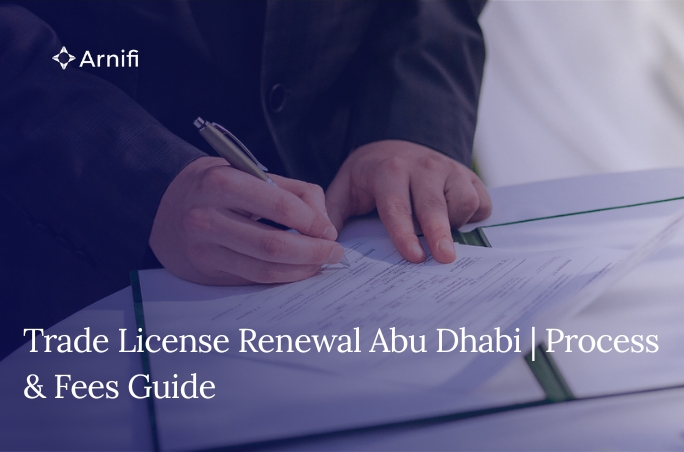Navigating UAE Business Models: Key Tips for Transitioning
by Shethana Nov 11, 2024  7 MIN READ
7 MIN READ

Whether you prefer the open access of the Mainland or the special benefits of a Free Zone, knowing the UAE’s unique business environment is vital. This guide gives you important tips to help you understand this lively market and build a successful business presence.
Overview of Regulatory Framework for Businesses
Navigating the legal rules is very important when you start a business in the UAE. The Department of Economic Development (DED) in each emirate manages the business licenses and looks after business activities.
Foreign investors can pick from different types of business structures. This includes mainland companies, free zone entities, and offshore companies. Each type has its own rules, ownership needs, and tax effects. Knowing these details is important for finding the best choice for your specific business.
Additionally, you need to understand the rules that apply to your industry. Some business activities might need extra approvals or licenses from the right government offices.
Key Business Models for Success in the UAE
Choosing the right business model is a key first step in starting a business in the UAE. You have two main options: mainland companies and free zone entities. Each choice has its own benefits and drawbacks. It is important to think about which one fits your business goals and future plans best.
Getting help from business setup consultants can be very useful during this important choice. These experts know a lot about the UAE market. They can give you advice that fits your needs and help you pick a business model that aligns well with your goals. This support can lead to a successful start in this fast-changing region.
Mainland vs Free Zone: A Comparative Analysis
Mainland companies are established under the jurisdiction of the DED in the respective emirate and allow businesses to operate anywhere in the UAE. However, they typically require a local Emirati sponsor to hold a majority shareholding (51%). On the other hand, free zone entities operate within designated economic zones, offering 100% foreign ownership, tax benefits, and exemptions from certain regulations.
The choice between the two depends on various factors, including your target market, business activity, and desired level of control. Free Zones cater to specific industries and often provide specialized infrastructure and support services. Meanwhile, Mainland companies grant broader market access and greater flexibility in business activities.
To simplify your decision-making process, use the table below to compare:
| Feature | Mainland | Free Zone |
| Ownership | Requires a local sponsor (51% ownership typically) | 100% foreign ownership allowed |
| Market Access | Unrestricted access to the entire UAE market | Limited to operating within the Free Zone, although recent changes may permit some broader market access |
| Tax Benefits | Subject to corporate tax but with competitive rates | Typically exempt from corporate and income taxes |
| Business Activities | Wide range of activities permitted | Restricted to specific activities allowed within the chosen Free Zone |
| Setup Cost | Higher setup costs | Lower setup costs |
Sector-Specific Opportunities: Where to Invest
The UAE offers great chances for different types of businesses. When you plan your business setup, it’s important to know your industry and target market. Choosing a sector with growth potential can help you succeed.
Here are some sectors getting a lot of investment right now:
- Tourism and Hospitality: Dubai is famous for its luxury and attracts many tourists from around the world. This creates a lot of chances for hotels, restaurants, and entertainment businesses.
- Logistics and Transportation: The UAE’s great location and top-notch infrastructure make it a global hub for logistics. Companies involved in freight forwarding, warehousing, and transportation can expect good growth.
- Real Estate and Construction: The real estate market in the UAE is strong, with high demand for residential, commercial, and tourism properties. This sector provides continuous opportunities for construction firms, architects, and real estate agents.
- Technology and Innovation: The UAE government supports a knowledge-based economy, which helps tech businesses grow quickly. Both new startups and established companies can find opportunities in fintech, e-commerce, and artificial intelligence.
Take the time to match your business plan with these growing sectors. Find where your skills and services fit with what the market needs right now.
Transition Strategies for Foreign Investors
Moving into a new market can be tough. For investors from other countries, it is important to know the local business scene, laws, and customs. It is a good idea to get help from business setup consultants. They can assist with the many steps needed for company formation, getting licenses, and processing visas.
It’s also key to create a solid market entry plan for the UAE market. This plan should involve knowing your target audience, looking at the competition, and building a strong brand presence.
Navigating Legal Requirements and Business Licensing
Setting up business models in the UAE means you have to follow certain legal steps. First, you need to register your company with the right authorities. Then, you have to get a business license and any necessary approvals related to your industry.
It’s very important to work with local experts or business setup consultants. They can help you understand the details of the process and make sure you follow all the rules. They can assist you with:
- Choosing the right legal structure: You need to decide if you want a mainland company, a free zone entity, or an offshore company based on what your business does and how you want to own it.
- Obtaining the necessary licenses and permits: They will guide you through applying for trade licenses, industry-specific permits, and other required approvals.
- Visa processing: They can help with visa applications for you, your employees, and their family members, making the process easier for everyone.
Cultural Insights for Business Integration
Integrating into the local market involves more than just following laws. It’s important to know Emirati culture and business ways. This knowledge helps you build good relationships and do well in the UAE.
Here are some key things to think about:
- Building Relationships: People in Emirati culture value personal connections. Take time to build trust and rapport with local contacts. This can be important for successful business deals.
- Communication Styles: Be aware that communication here is often indirect and formal. It is key to show respect and avoid conflict when doing business.
- Religious Observances: The UAE is an Islamic country. Be respectful of religious days, like Ramadan, when business hours may change.
Understanding these cultural aspects can help you engage better, form strong relationships, and improve your success in the UAE.
Tips for Effective Business Transition in the UAE
Transitioning your business models to the UAE needs careful planning and smart actions. You should not only focus on the legal and regulatory parts but also understand the local culture. It’s important to embrace local customs, build good relationships with local partners, and learn about business etiquette.
Use the UAE’s strong digital tools and innovative solutions to make your operations easier. By really understanding the local market and taking a proactive approach, you can make your business move successful and set yourself up for growth.
Building Local Networks and Partnerships
Building strong local networks is very important, especially for mainland companies that need a local sponsor. A good local partner can give you helpful information about the market, culture, and rules.
In the UAE, there are many chances to network. You can attend industry events, business forums, and conferences. By joining these events, you can meet potential partners, clients, and suppliers.
Keep in mind that strong relationships take time to build. Work on creating real connections and show your dedication to the local market. Trust and good relationships with local contacts will be very helpful as you explore the UAE’s business landscape.
In conclusion, doing business in the UAE requires careful planning. You need to understand the different opportunities there. Knowing the economy, laws, and business options is essential for success. By creating local connections, learning about legal needs, and using digital tools, foreign investors can do well in this changing market. It is also important to connect with the culture and build strong partnerships to grow your business. Follow these tips to make a smooth change and take advantage of the UAE market.
Explore our consultation services for personalized guidance on transitioning your business in the UAE.
Also Read: What You Need to Know About the Upcoming Unified GCC Visa
Top UAE Packages

Related Articles
Top UAE Packages



